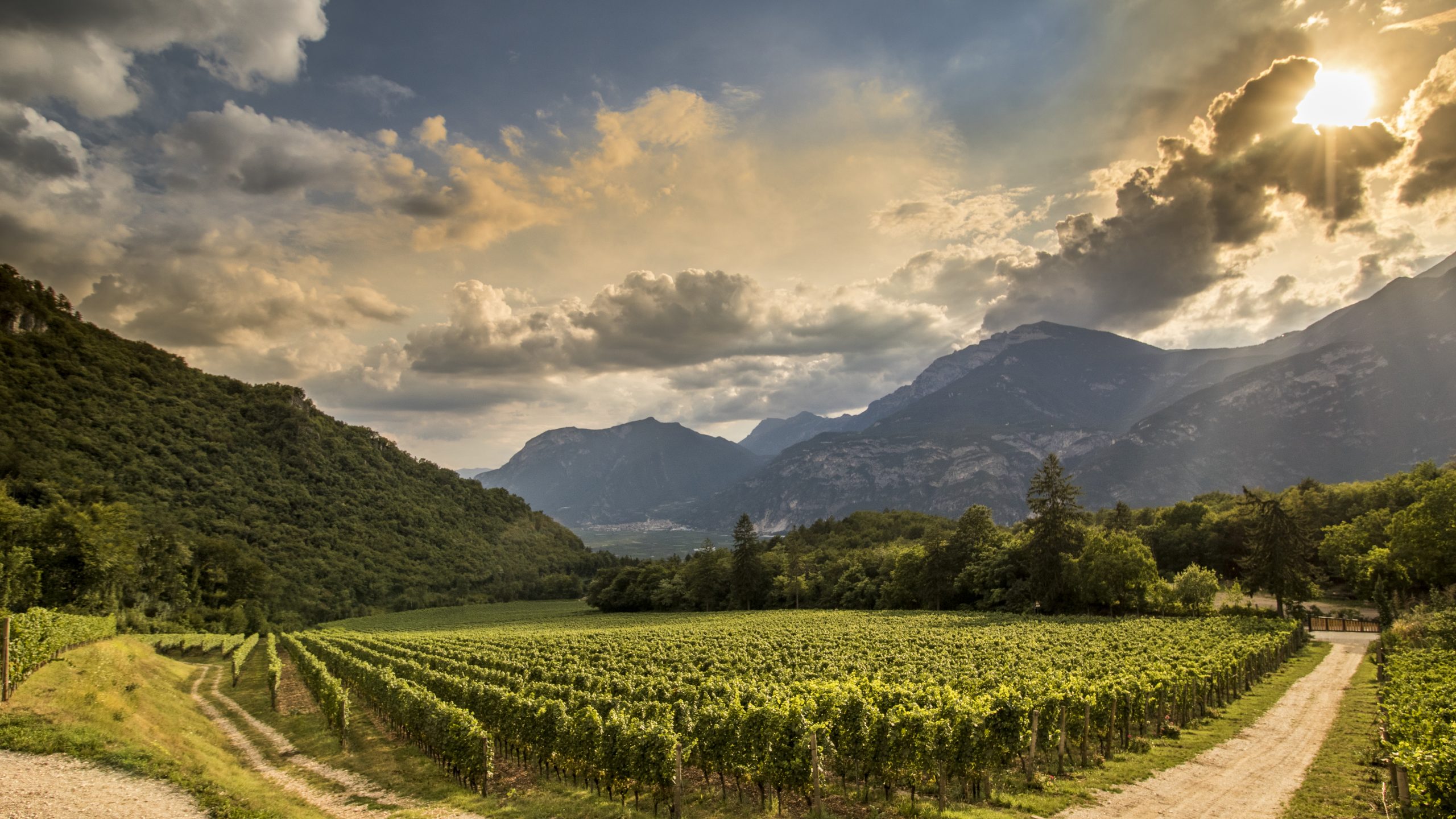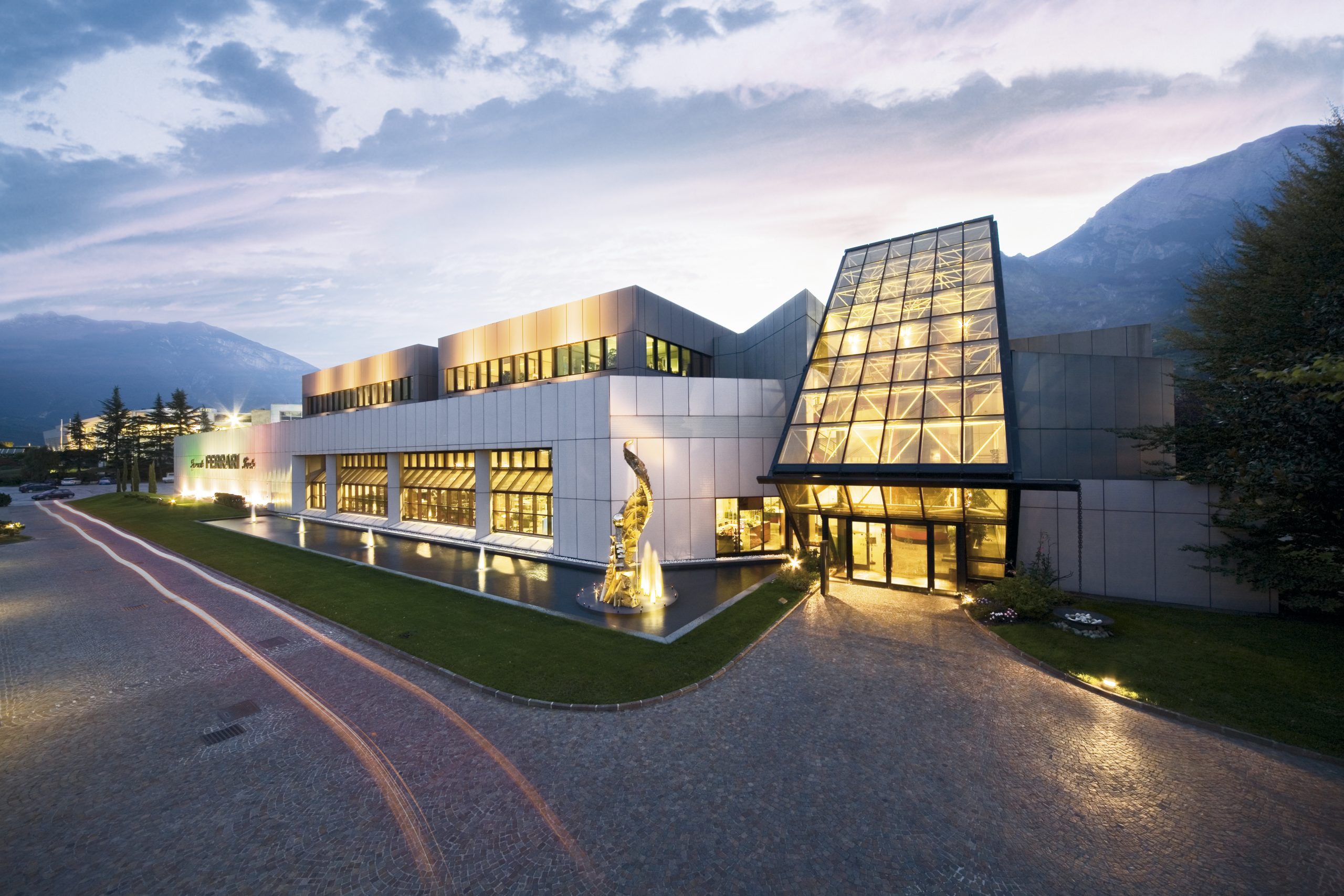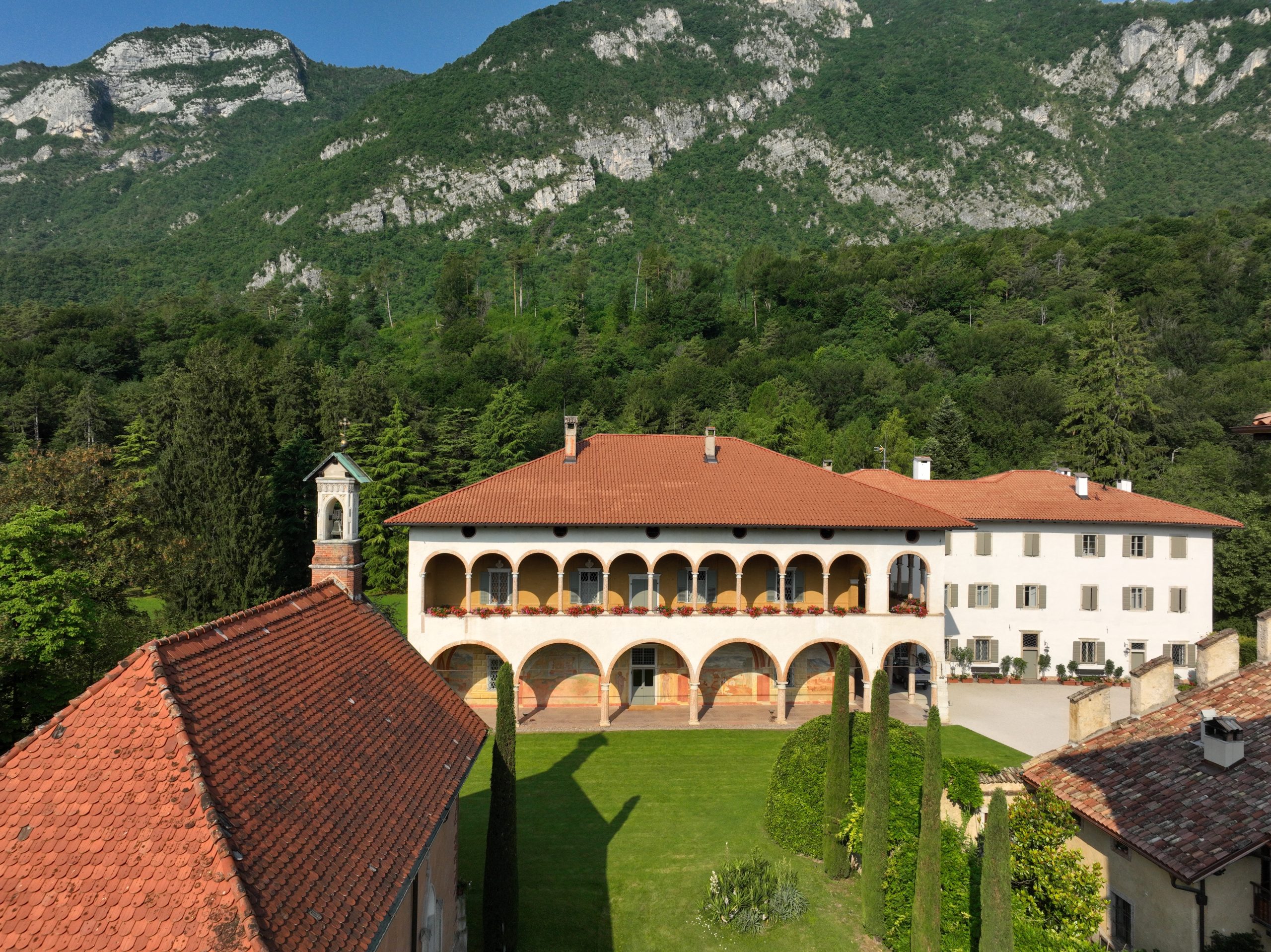This website uses cookies so that we can provide you with the best user experience possible. Cookie information is stored in your browser and performs functions such as recognising you when you return to our website and helping our team to understand which sections of the website you find most interesting and useful.
Ferrari Trento pushes forward sustainability in Trentodoc
Founded on a close connection with the land 120 years ago, Ferrari Trento now protects its landscape with a broad sustainability programme.

Ferrari Trento has a special relationship with the land in Trentino, northeast Italy. It was Giulio Ferrari, the winery’s founder who, in 1902, recognised the area’s potential to compete with Champagne. He planted Chardonnay, among the first vineyards of it in Italy, in order to make traditional method sparkling wines in the mountainous terrain. Long before the wines had international reach, a close relationship with the land was guiding Ferrari Trento.
Nowadays, the winery is not alone in celebrating the region. Trentodoc, the appellation founded in 1993 – the first in Italy only dedicated to sparkling wines –, holds true to the principles Giulio Ferrari advocated: mountainous terroir, traditional method winemaking and blends of Chardonnay, Pinot Bianco, Pinot Noir and Pinot Meunier. Along with Ferrari Trento, there are 66 other wine cellars operating in the region.
Ferrari Trento’s relationship with the land, therefore, has evolved. The winery is no longer a pioneer simply by its plantings in the region. It has, however, driven other substantial work that foregrounds the importance of the land, In particular, Ferrari Trento has taken bold steps to ensure the region is farmed sustainably for years to come.
Beginning in the vineyards
At Ferrari Trento, the impacts of climate change are already being seen in the vineyards. The warmer climate has brought harvest dates forward, shortening the growing season, and extreme weather events are becoming more common. There are also changing patterns in pest behaviour that require different responses.
Fittingly, Ferrari Trento’s work in sustainability therefore begins in the vineyard, a project that has been decades in the making.
All the vineyards owned in Trentino by Gruppo Lunelli, the company which owns Ferrari Trento, are certified organic. That process began in 2009, growing from its commitment to eliminate synthetic chemical fertilisers, insecticides and herbicides from its owned vineyards.
The winery also works closely with its partner growers, for instance in offering training sessions to them. In partnership with external, expert bodies, the sessions have covered a variety of vineyard practices, such as pruning and defence against common threats.
All of the company’s growers have also been asked to adhere to its sustainability protocol, ‘Il Vigneto Ferrari”. The independently certified programme enshrines both quality grapegrowing and sustainable practices.

Biodiversity has also become a key concern for Ferrari Trento. Organic viticulture, naturally, complements a biodiversity drive. However, the winery has also followed independent paths to promote biodiversity in its land, obtaining the “Biodiversity Friend” certification since 2015.
That work has been led by studies on the local landscape, with particular regard to the interaction between the natural environments and the traditional agricultural landscape.
Ferrari Trento’s work therefore, has been precisely targeted. It found, for instance, that pollinating insects are heavily affected by vineyard practices, and therefore minimising agrochemical use is central to protecting them. Birds, on the other hand, are more affected by the structure of the landscape and habitats within it. That research has led to programmes such as specifically protecting trees with cavities for woodpeckers.
Making the most of water resources
Both in the vineyard and beyond, Ferrari Trento views one resource in particular through a lens of sustainability. From nurturing the first buds on the vine, to cleaning equipment after bottling, water is a vital resource for all stages of winemaking. It is therefore essential to use it efficiently in every context.
Sensor-based control systems have been integrated into the irrigation system used in vineyards. These can detect variations in soil moisture and so alter the rate of irrigation, ensuring the effective use of the precious resource.
In a similar vein, since 2022 Ferrari Trento has engaged in an experimental project to digitise its vineyards. This, in conjunction with satellite imagery, allows careful monitoring of water stress in the vines. It thus allows the team to make precise, water-efficient decisions.

Even the vines themselves have had a hi-tech makeover. Ferrari Trento is one of the founding companies behind Winegraft, a collaborative organization dedicated to new-generation rootstocks. The winery is employing the organisation’s work to maintain more efficient vineyards.
Vines are being planted with M2 and M4 rootstocks, developed by the University of Milan. These roots allow 30% less water to be used by the vines, a significant resource saving.
Making the most of the precious resource continues to be a priority at the winery. There, Ferrari Trento has used detailed tracking and reporting to see where its use is highest, and for what reasons. Such observations are serving as the basis for further targeted efficiencies.
A broader perspective
Even when the impact is less local, Ferrari Trento has committed itself to sustainability in its work. Its work still involves respecting the land, but on a global scale: reducing its emissions and its resource use.
As certified by ClimatePartner, the winery has achieved scope 1 and 2 carbon neutrality, and partially achieved scope 3. That means that the direct emissions from its own activities are neutralised, with significant work ongoing to eliminate those through its value chain.
The approach to carbon neutrality is multi-layered. On the one hand, it is highly local. An array of photovoltaic panels on winery buildings are helping Ferrari Trento to deal with many of its energy needs ‘in house’.
On the other hand, it has engaged in carbon offsetting where it cannot use renewable energy. Through its offsetting efforts, again certified by ClimatePartner, Ferrari Trento has helped fund a wind farm in Turkey.
Giving to communities
Moreover, sustainability does not just mean greenness for Ferrari Trento. The winery also embraces social sustainability, safeguarding both the past and the future of its region.
Ferrari Trento has committed itselg to protecting Trentino’s cultural, economic and artistic spheres. The company actively promotes wine tourism – inviting visitors to explore the picturesque landscapes of the region while experiencing the craftsmanship behind its Trentodocs. Meanwhile, it supports local communities by listening to their needs and supporting third sector entities.
The winery also safeguards the region’s artistic heritage, participating in cultural initiatives that celebrate Trentino’s history and traditions. For example, the recent restoration project of Villa Margon, the sixteenth-century country house that is now Gruppo Lunelli’s hospitality centre, has further enriched the region’s appeal and promoted its identity.

Turning to the future, Ferrari Trento has partnered with a number of local schools. Making use of its significant experience, the winery has offered training courses for young people in the field of hospitality. It has also launched a project to raise awareness of the risks of addiction and unhealthy consumption, including as they apply to alcohol.
These are just some of the sustainability initiatives that Ferrari Trento is pursuing. The full picture is available in its annual sustainability reports. Yet, even scratching the surface, it is still showing the same commitment to Trentino land that led Giulio Ferrari to plant there. Times change, but some commitments are unwavering.
Related news
New chair of Napa Valley Vintners board announced

